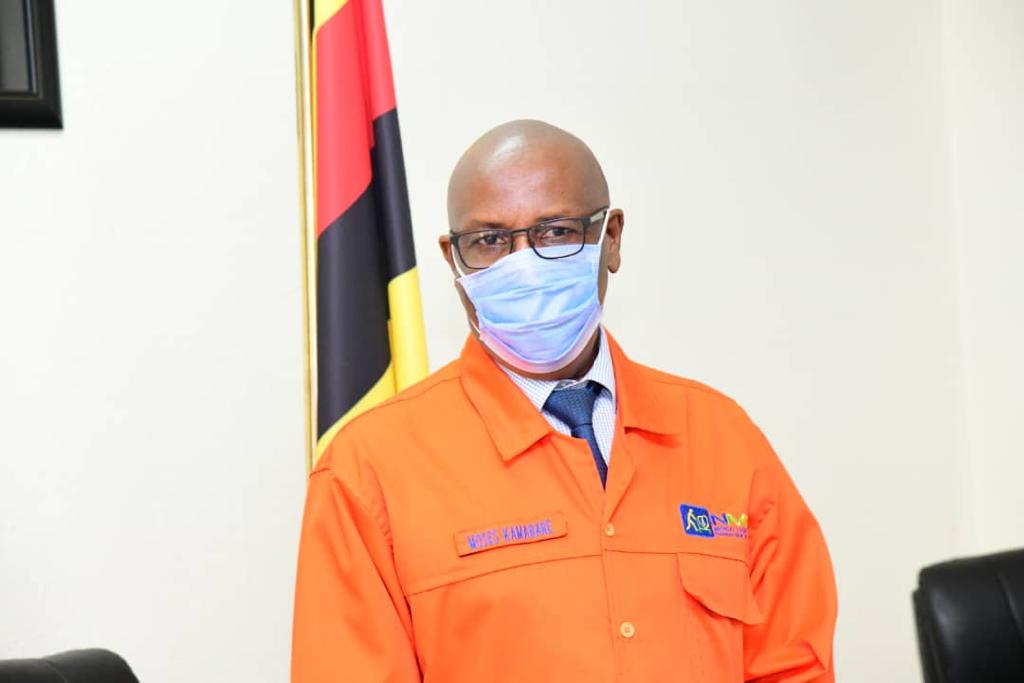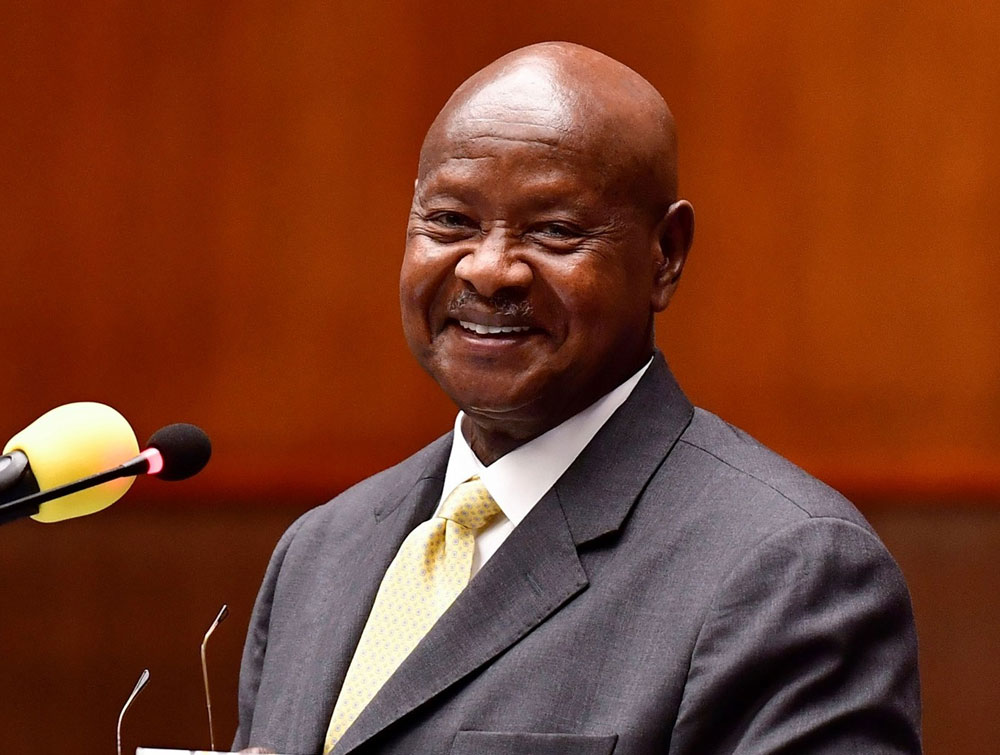National Medical Stores (NMS) has spoken out on MPs’ concerns that the institution is not using the Integrated Financial Management System (IFMIS), saying this situation was partly caused by strict engagement conditions set by their donor partners.
NMS’ partners such as like USAID, GAVI and Global Fund contract and pay the entity for storage, delivery and distribution of the essential medicines and vaccines donated to the people of Uganda.
Such donors were, because of the past experiences such as the Global Fund scandal, reluctant to deposit their tax payers’ money via the Consolidated Fund and remained apprehensive of potential accountability inconsistencies in case they didn’t deal with NMS directly as the service provider.
Lawmakers this Thursday afternoon said this could lead to abuse of public funds.
Public Accounts Committee (PAC) chairperson Nandala Mafabi said NMS should be held to account for delaying to subscribe to the financial system used by other government institutions.
MPs also observed that donor support funds should be appropriated by Parliament for accountability.
However, State Minister of Finance Hon David Bahati said an amendment to existing laws is being prepared to provide for this requirement.
He explained that it’s not only NMS but several other institutions receiving tight conditions from donors.
NMS procures, stores and delivers essential medicines, health supplies and vaccines across Uganda.
NMS says it has generated revenue for the Government through earning service fees for the provision of medicines storage, delivery and distributions’ services on behalf of the donors.
Mafabi recently reported NMS to President Museveni, calling for an investigation into the operations of the institution over alleged corruption.
The report compiled by IGG exonerated NMS of any wrongdoing.
It indicated that donor funds were transparently captured by NMS management and the same was reflected in the entity’s budget as scrutinized and approved by the Board.
“According to the financial statements, NMS’ expenditure was in line with the approved budgets,” the IGG’s report reads in part.
The report indicates that the investigators referred to several audits routinely conducted by the Office of the Auditor General, covering both Government and donor funding, which rated NMS highly having inquired into the management of funds donors pay to NMS for warehousing, delivery and distribution of medicines and vaccines and no foul play ever being detected.
“An audit [into all that] by the OAG on the NMS accounts for the FY ended 30th June 2019 did not indicate any mismanagement of funds,” said the IGG.
Below is the IGG, Full Report Exonerating NMS from any wrong doing
REPORT ON INVESTIGATIONS INTO ALLEGED MISMANAGEMENT AT NATIONAL MEDICAL STORES
The Inspectorate of Government received a complaint on alleged mismanagement at National Medical Stores (NMS) with the following specific allegations:
1. That NMS had refused to utilise the Government’s Integrated Finance Management System (IFMS) which might have enabled them to hide irregularities;
2. That resources were diverted to purposes for which they were not meant; for example, NMS diverted UGX 13.6 billion in 2016 for purchasing medical equipment;
3. That NMS bought items at inflated prices, for example staff uniforms were purchased at UGX 153,360 instead of UGX 101,000 per item;
4. That NMS bought drugs from middlemen at high prices instead of buying them from the manufacturers at lower prices and did not follow the Public Procurement Regulations;
5. That donations in kind or cash were never accounted for;
6. That NMS bought drugs that were about to expire at low prices, possibly in collusion with the sellers; and
7. That NMS obtained drugs on credit for UGX 227 billion in a suspicious deal and eventually wrote off UGX 131 billion
Our investigations established the following:
Whether NMS had refused to utilise the Government’s Integrated Finance Management System (IFMS) which might have enabled them to hide irregularities
NMS started using the IFMS in FY 2010/2011 but was not fully operating on the system until FY 2019/2020 when they fully operated on the system after concerted efforts by Ministry of Finance Planning and Economic Development (MoFPED).
According to NMS, the delay to fully operate on IFMS was due to the uniqueness of its operations and also because it was supposed to run as a business model.
Further, NMS argued that it had developed systems that enabled its smooth operation, however, these were found to be incompatible with the IFMS. In addition, NMS noted that the corporation received handling fees for storage
and delivery of donated medicines and medical supplies from various sources including partners (donors) who were reluctant to deposit these funds on the Consolidated Fund because of accountability issues, among others.
The Office of the Auditor General audited NMS accounts, including all monies received by the Corporation from Government of Uganda and service fees from Development Partners for warehousing and distribution of medical donations.
An audit by the Auditor General on the NM’ accounts for FY ended 30» June 2019 did not indicate any mismanagement of funds.
Whether Resources were diverted to purposes for which they were not meant. Whether for example, NMS diverted UGX 13.6 billion in 2016 for purchasing medical equipment.
There was no diversion of UGX 13.6 billion at NMS as was alleged.
It was established that UGX. 13,350,000,000 was transferred by Ministry of Health (MoH) to NMS for procurement of uniforms and medical stationery over a period of three Financial Years; 2016/2017, 2017/2018 and 2018/2019.
NMS is mandated to procure, store and distribute medicines and medical supplies under Section 4 of the NMS Act cap 207.
However, funds for procurement of uniforms were appropriated to Ministry of Health (MoH) which transferred the funds to NMS for procurement and distribution of the required uniforms.
NMS then accounted to MoH. This not only increased the bureaucracy in the
accounting and audit process for the funds appropriated for the procurement of medical uniforms and medical forms but also breached NMS’ mandate under Section 4 of the NMS Act Cap 207.
During FY 2016/2017, Parliament appropriated funds to Ministry of Health for the recruitment of specialists for hospitals which were rehabilitated under the Uganda Health Systems Strengthening Project (UHSSP).
However, four Hospitals namely Entebbe Hospital, Iganga Hospital, Moroto Regional Referral Hospital and Nebbi Hospital, failed to recruit specialists.
Subsequently, MoH transferred UGX. 650 million to NMS to procure medicines and small equipment for the four Hospitals which were required to provide quality services.
NMS procured and delivered the medicines and small equipment to the four
hospitals.
Whether NMS bought items at inflated prices, for example, whether staff uniforms were purchased at UGX 153,360 instead of UGX 101,000 per item
NMS received a total of UGX. 13,350,000 from MoH for the procurement of uniforms and medical forms over a period of three financial years from 2016/2017 to 2018/2019.
Accordingly, NMS initiated two procurement processes on 8t March 2017 for
Medical Staff Uniforms at a reserve price of UGX. 152,460 and UGX. 166,980 for females and males uniforms respectively and on 18th January 2019 for Medical and Allied Professional Workers at a reserve price of UGX. 95,000 for both females and males uniforms.
NMS was required to procure a local manufacturer as a supplier for Medical Staff uniforms in line with the Buy Uganda, Build Uganda policy.
M/s Southern Range Nyanza Ltd (NYTIL) was the sole bidder and the only Company among the local manufacturers that had the capacity to supply Medical Staff uniforms and was awarded the contract for three years.
Accordingly, NMS procured uniforms from M/s Southern Range Nyanza Ltd (Nytil) at a unit cost of UGX. 142,000 for both females and males under Lots 1 – 12 and 14 – 23 while uniforms under Lot 13 were procured at UGX. 180,000 for both males and females as indicated in the Company’s bid.
There was no evidence obtained to suggest that the unit price for the uniforms was inflated. M/s Southern Range Nyanza Ltd.’s (Nytil) was the sole bidder; had been supplying uniforms to NMS before FY 2016/2017 and the unit price at which the Company was contracted for supply of uniforms was lower than NMS’ reserve price.
Whether NMS bought drugs that were about to expire at low prices, possibly in collusion with the sellers
In FYs 2018/2019 and 2019/2020, NMS procured drugs under three-year Framework Contract Agreements with different suppliers and also a lump sum contract with M/s Cipla Ltd for the supply of Anti-Malarial drugs, Anti-retroviral (ARVs) and Reproductive Health items.
The prices under these contracts were fixed and were determined during the procurement process.
Over the period of three years of the Framework Contracts, the quantity supplied varied depending on the need/client demand as indicated in the Call Off Orders/LPOs that were issued.
The medicines/ drugs procured by NMS that expired were valued at a total of UGX. 218,710,420.
They had the requisite shelf life of not less than 75% of the whole product’s life at delivery to NMS.
NMS also received donations in kind in form of medicines and medical supplies from Donors through Ministry of Health.
However, some of the donated items that expired valued at UGX.
140,162,502 did not meet the requirement of 75% shelf life at the time of delivery to NMS.
In FYS 2018/ 2019 and 2019/ 2020, NMS’ expiry rates for medicines did not exceed 0.5%. This was below both the World Health Organization standard rate of 5% and NMS’ set expiry rate of 2%.
Whether NMS bought drugs from middlemen at high prices instead of buying from the manufacturers at lower prices and did not follow the Public Procurement Regulations
In FYs 2018/2019 and 2019/2020, NMS contracted suppliers for medicines and medical supplies that were on National Drug Authority’s (NDA’s) Drug register in accordance with the National Drug Policy and Authority (NDPA) Act Cap 206, NDPA (Registration) Regulations 2014 and the PPDA (Procurement of Medicines and Medical Supplies) Regulations 2014.
These laws require suppliers to be registered on the NDA drug register to be authorized to import or manufacture medicines in Uganda.
In addition, all locally manufactured products were to be procured from local manufacturers in line with the PPDA guidelines on reservation schemes and the BUBU policy. In FY 2018/2019 and 2019/2020, NMS procured 51% and 60% of its entire stock from local manufacturers respectively. The other stock was procured from suppliers registered by NDA.
Public Procurement and Disposal of Public Assets Authority’s (PPDA) Audit report for FY 2018/2019 rated NMS as highly compliant to the PPDA Act and Regulations.
Whether NMS received and accounted for Donations in kind or cash
NMS did not receive any donations in cash.
NMS received Essential Medicines and Health Supplies as donations in kind worth UGX 694,744,246,373 and UGX 743,110,929,950 in FY 2018/2019 and FY 2019/2020 respectively from Development Partners (donors) such as USAID and Global Fund, among others through the Ministry of Health.
These donations were audited by the Office of the Auditor General (OAG) and Audit Firms appointed by the Development partners (donors) who issued their audit reports. The audit reports did not indicate any impropriety by NMS.
NMS charged a service/handling fee for the warehousing and distribution of the donated items.
The service fees formed part of NMS’ income and were included in the entity’s budget that was approved by the Board.
According to the financial statements, NMS’ expenditure was in line with the approved budgets.
Whether NMS obtained drugs on credit for UGX 227 billion in a suspicious deal and eventually wrote off UGX 131 billion
All purchases at NMS were made on credit and payment was made within ninety (90) days after delivery.
This was in line with the PPDA Act and Regulations.
NMS’ financial statements to the Accountant General’s office for FY 2016/ 2017 indicated that the Corporation had outstanding payables (debt) of UGX. 227,289,011,281 at the end of the Financial Year.
This included UGX 137,254,602,960 that had been carried forward from the previous Financial Year and UGX 90,034,408,321 for FY 2016/2017.
However, the statements to the Office of the Auditor General for FY 2016/2017 indicated UGX. 90,034,408,321 as the outstanding payables (debt).
This implied that the outstanding payables (debt) of UGX. 227,289,011,281 had been overstated by UGX. 131,720,048,978 which NMS attributed to omission of payments made towards clearing part of the debts for FY 2015/2016 and FY 2016/2017.
Accordingly, the UGX. 131,720,048,978 was an adjustment to NMS’ outstanding payables (debt) of UGX. 227,289,011,281 to reflect the correct position on outstanding payables (debts) of UGX 75,458,531,639 and not a write off as alleged. Although no suspicious debts were detected, this incorrect financial reporting posed risks to Government funds.
In view of the above findings and observations, we recommend that:
1. Ministry of Health should ensure that the funds meant for procurement and distribution of Health Workers uniforms and Medical Stationery are appropriated directly to NMS which is mandated to procure, store and distribute medical supplies in compliance with the NMS Act Cap 2017; and to ease the accountability, transparency and audit process.
2. The General Manager National Medical Stores should always ensure accurate financial reporting to avoid risks such as inclusion of debts in the National budget which have already been cleared among others.
A detailed report is hereto attached.
Mariam Wangadya
DEPUTY INSPECTOR GENERAL OF GOVERNMENT
Copied to:
1. The Permanent Secretary, Ministry of Health
2. The Permanent Secretary/Secretary to the ‘Treasury,
Ministry of Finance Planning and Economic Development
3. The Chairman, Board of Directors National Medical Stores
















